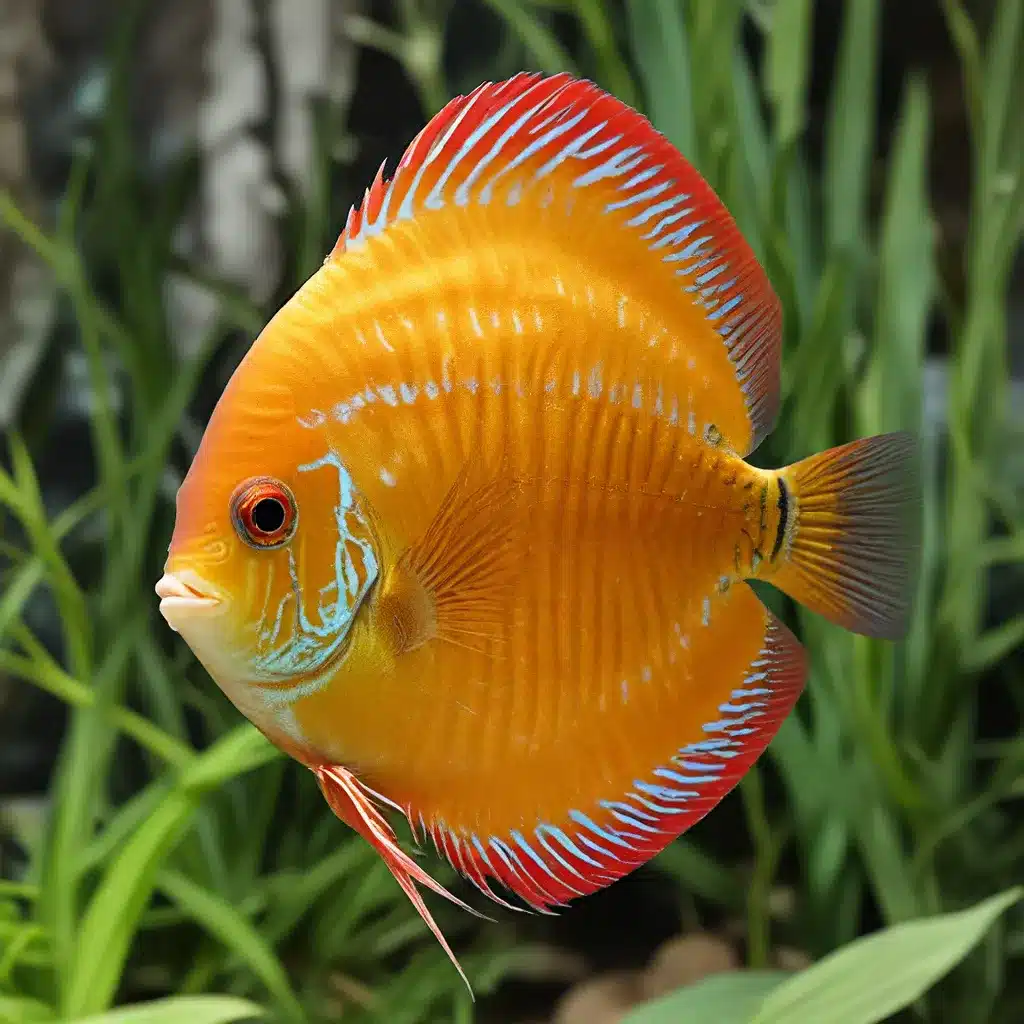
Understanding the Discus Fish
Discus fish, often referred to as the “king of the aquarium,” are a mesmerizing and highly sought-after species in the aquarium hobby. These regal freshwater fish, native to the Amazon basin, captivate hobbyists with their vibrant colors, unique body shape, and captivating swimming patterns. Their graceful movements and striking appearances make them a true focal point in any well-designed aquarium.
Delving into the world of discus fish care requires a deep understanding of their specific needs and preferences. These fish are known to be particularly sensitive to water quality and environmental conditions, making their care a challenge for beginner and experienced aquarists alike. However, with the right knowledge and dedication, discus fish can thrive and become the centerpiece of a stunning aquatic display.
Water Parameters and Maintenance
One of the key factors in successful discus fish keeping is maintaining the appropriate water parameters. Discus are tropical fish that require warm, soft, and acidic water conditions to truly flourish. The ideal water temperature for discus should be between 82-86°F (28-30°C). They also prefer a pH range of 6.0-7.0 and a water hardness (dKH) of 1-12.
Consistent water quality is essential for discus. Partial water changes of 25-50% should be performed weekly to keep nitrate levels low and replenish the softened water. It is important to use a quality water conditioner to remove chlorine, heavy metals, and other contaminants that can be harmful to these sensitive fish.
Proper filtration is also crucial for maintaining the ideal water parameters. Discus require a heavily planted aquarium with strong mechanical and biological filtration to keep nitrate, ammonia, and other waste products at bay. Oxygenation through the use of surface agitation or air stones is also recommended.
Feeding and Nutrition
Discus fish are omnivorous and require a diverse diet to thrive. In the wild, they feed on a variety of small invertebrates, plant matter, and even fallen fruit. In the aquarium, a high-quality pellet or flake food should be the foundation of their diet, supplemented with live or frozen foods such as brine shrimp, daphnia, and bloodworms.
It is important to feed discus multiple small meals throughout the day rather than a single larger feeding. This helps to mimic their natural feeding patterns and ensures that they receive the necessary nutrients. Portion sizes should be carefully monitored to avoid overfeeding, which can lead to water quality issues and potential health problems.
Aquascaping and Tank Setup
Creating a visually stunning and biologically suitable environment for discus fish is a crucial aspect of their care. Aquascaping for discus should focus on replicating their natural habitat, which is characterized by dense, heavily planted aquascapes with plenty of hiding places.
Incorporate lush aquatic plants, such as Amazon swords, cryptocorynes, and anubias, to provide both visual interest and beneficial biological filtration. Arrange the plants in a manner that creates a natural-looking layout with varying heights and textures.
| Aquascaping Style | Recommended Substrates | Lighting Requirements |
|---|---|---|
| Heavily Planted | Fine gravel, sand, or soil-based substrate | Moderate to high intensity, with a photoperiod of 8-12 hours |
| Minimalist | Smooth river rocks or driftwood | Low to moderate intensity, with a shorter photoperiod of 6-8 hours |
Incorporate natural décor elements, such as driftwood and rocks, to create hiding spots and visual interest. Ensure that the tank size is appropriate for the number of discus, with a minimum of 30 gallons for a single adult fish.
Discus Breeding and Reproduction
Discus fish are fascinating to observe in their natural breeding behaviors. In the wild, they form monogamous pairs and engage in elaborate courtship rituals before spawning. In the aquarium setting, creating the right conditions for discus breeding can be a rewarding challenge for experienced hobbyists.
To encourage breeding, maintain stable water parameters, provide ample hiding spots, and ensure a balanced adult sex ratio. Introduce live foods, such as brine shrimp and daphnia, to enrich the diet and trigger the breeding instinct. With patience and careful monitoring, you may be able to witness the remarkable process of discus fry development and rearing.
Common Health Concerns and Treatment
Despite their regal appearance, discus fish can be susceptible to a variety of health issues if their care requirements are not met. Some of the most common health concerns include:
-
Ich (Ichthyophthirius multifiliis): A parasitic infection that causes white spots on the fish’s body and fins. Treat with appropriate medications and improve water quality.
-
Bacterial Infections: Caused by poor water conditions, can lead to conditions like fin rot, skin lesions, and general malaise. Address underlying water quality issues and use antibacterial treatments.
-
Malnutrition: Improper diet or insufficient feeding can result in stunted growth, poor coloration, and susceptibility to disease. Provide a balanced and varied diet.
-
Aggression and Territorial Behavior: Discus can be territorial, especially when kept in small groups. Ensure adequate space and establish a proper social hierarchy.
Maintaining optimal water parameters, providing a stress-free environment, and closely monitoring the fish’s health are essential for preventing and addressing these common discus ailments.
Conclusion
Delving into the captivating world of discus fish care requires a deep understanding of their unique needs and preferences. By consistently providing the right water conditions, delivering a balanced diet, and creating a visually stunning aquascape, you can unlock the true potential of these magnificent aquarium inhabitants.
Whether you’re a seasoned discus enthusiast or a newcomer to the hobby, this comprehensive guide has equipped you with the essential knowledge to ensure your discus fish thrive and become the centerpiece of your aquatic oasis. Embrace the challenge, nurture their well-being, and witness the majestic beauty of these regal fish in your own home.

